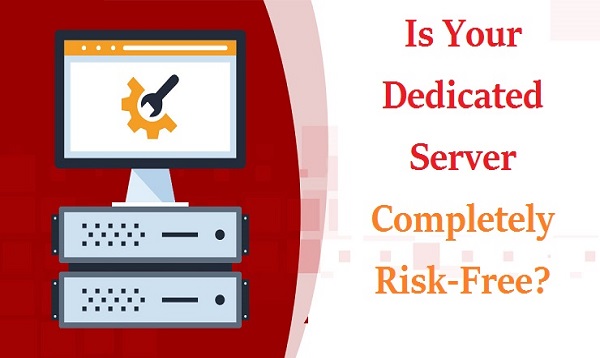With dedicated hosting you can get exclusivity of server resources; this implies better control over resource allocation, higher uptime guarantees and higher reliability. Unlike shared hosting where resources have to be shared with co-users on the same server, in dedicated hosting, you have full access to the server and you can make necessary changes to its configurations. While dedicated hosting will offer you more control over the server settings and console access; it expects you to use these privileges with a lot of caution and responsibility.
What are some of the biggest threats to dedicated servers?
When you have chosen to sign up for dedicated hosting plans, you become responsible for ensuring that the server is well protected from breaches and online threats. So, it is also your duty to take necessary steps to avoid any kind of breaches. This also requires an understanding of what the possible breaches can be so that you can take steps to control these before they occur.
Denial of Service Attacks: One of the biggest risks which dedicated server hosting suffers from is Denial of Service or DoS attacks. When you opt for dedicated hosting in the first place, it means that you have a large clientele and your website gets a lot of incoming traffic. This is what also makes your site a preferred target for DoS attacks. When there is a DoS attack, as the very name suggests, there is complete failure of services. The website becomes unavailable to clients because the server gets flooded with too many user requests. In a DoS attack, there are multiple malicious computers which work together to completely inundate your server with requests. As a result, resources get waster and the server soon becomes unresponsive as it is unable to handle the overwhelming numbers of requests and queries. Customers become disgruntled and tend to navigate away from the site.
To prevent this from happening you need to choose a dedicated server hosting plans which can guarantee you high end hardware and adequate system resources.
Your provider should also have effective firewalls deployed to keep away malicious data from the servers.
Your hosting provider should also keep monitoring the server at all times to look out for an unprecedented traffic spikes.
Security Breaches from Malware: Another very common kind of threat to any dedicated server would be the presence of malware on it. The main reason why this is a common occurrence is simply because of the fact that in dedicated hosting, client enterprises have the freedom to install software and applications of their choice. This makes such software prone to malware. Malware is nothing but software which has been specifically coded to stead important data from your servers. So, any kind of viruses, worms, Trojans and spyware are all examples of malware. Sometimes malware are hard to detect because they get intrinsically integrated with applications and legitimate scripting languages. So, scanning files is a must when you wish to protect your dedicated servers.
Before signing up for dedicated hosting, it is advisable to look for providers which scan or monitor the files 24×7 on their servers to spot loopholes and vulnerabilities.
The host needs to check for unusual advertisements or hidden frames which could be spyware.
It should also test all applications well in advance on isolate home devices to make sure that when these are uploaded, they do not carry any malware on them.
Password Breaches: A third type of risk which dedicated servers suffer from is password breaches. Hacking is far more advanced today than it was earlier and the tools and cutting edge technologies which hackers have at their disposal today makes their work really easy. There are instances of hackers penetrating servers using the easiest tool which is the password. So, it is extremely important to have a robust password for your server.
A good password should ideally have a random combination of lower and upper case letters and figures because hackers usually find this hard to crack.
Moreover, you must keep changing your password from time to time to keep your data secure.
It is advisable to use separate passwords for separate parts of the server; so there should ideally be distinct passwords for email access and control panels.
It is advisable to login always through any connection that is secure. Accessing the control panel through links in emails is strictly discouraged. It is always safer to access a URL by typing it in manually.
When entering passwords, it is important to check for the site address and the content to ensure it is not any phishing site.
These are some of the most commonly noticed threats which dedicated servers are known to face. Taking these precautions can help you enjoy a safe and rewarding user experience.
For Interesting Topics : Why dedicated server hosting is still in demand?






 Live Chat
Live Chat